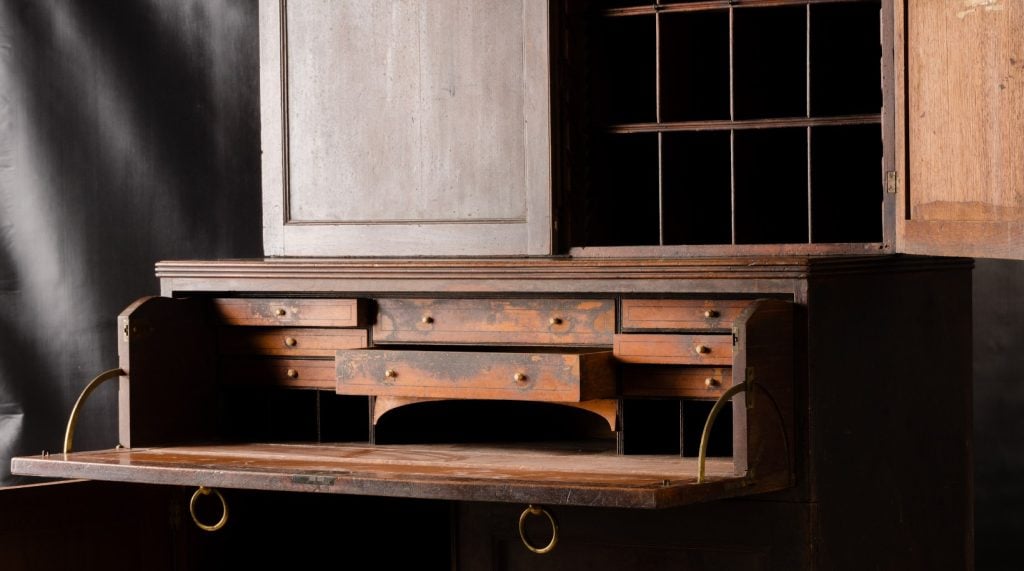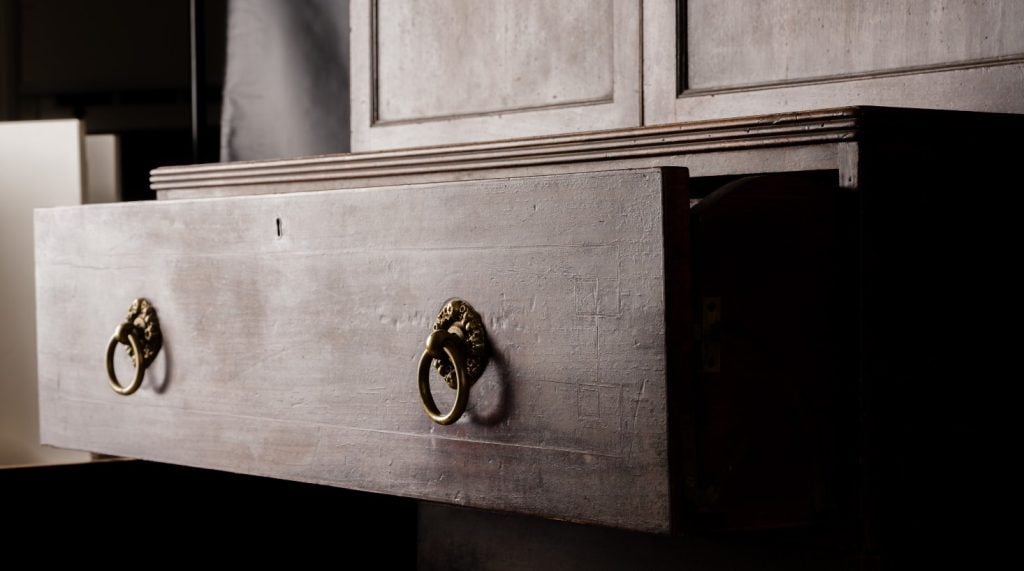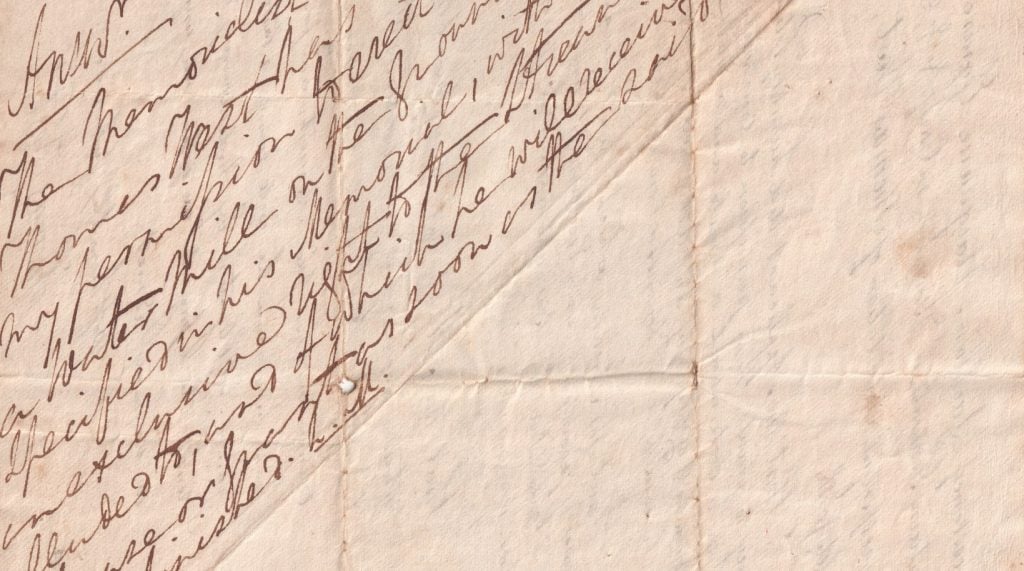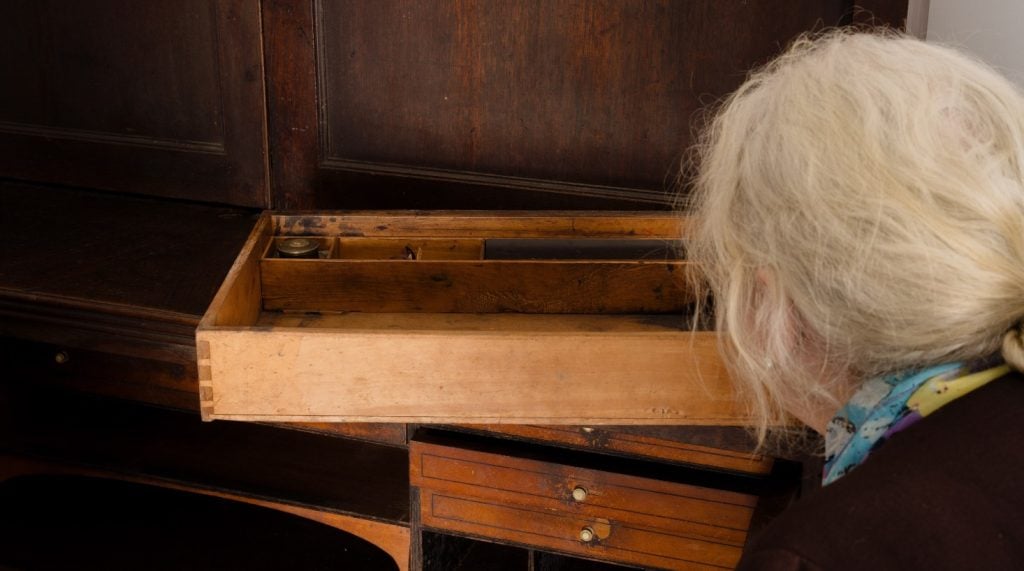The history that lay hidden inside a rare piece of colonial furniture.
Standing in a corner of Old Government House is a writing desk with a fascinating history. While at first glance the workman-like form of this dark wood secretaire might not delineate it as an object of intrigue, its practical form belies its remarkable past. The story of the desk can be traced back to the early colony of NSW through its original owner, the convict turned entrepreneur, Thomas West.
Crafted by convict tradesmen in the early days of settlement, it is a piece created with great skill with numerous compartments and distinctive star-shaped inlays. Interestingly these unique inlays echo those of another surviving piece of furniture from Thomas West – a grandfather clock built by renowned convict carpenter James Oatley, which also resides at Old Government House.

From one generation to the next
After Thomas’ death in 1858 the writing desk remained in the family, passing down through his descendants. It eventually ended up in the Northern Beaches, in the suburb of Newport at the home of Gwendoline (Gwenda) West. Gwenda was an accomplished photographer and artist, an alumnus of Sydney Technical College and most likely one of the first female students at the art school.
When she passed away the desk was inherited by her nephew Harry Brackstone, whose earliest memories of the desk involve his aunt employing it as a stately artist’s easel. “She used it to keep all her painting equipment, brushes, oils… because she was an artist – that was her life’s work,” he recalls.

A secret long hidden is revealed
Not only a storied piece of furniture that prevailed through the development of modern Australia, the secretaire also held within its depths another tangible glimpse of history. At some point when it was moved, previously concealed correspondence was uncovered.
Among the documents that fell out of the desk was a highly significant letter penned by its original owner Thomas West. In this letter, Thomas is asking permission from Governor Macquarie to construct a watermill. On the back of the letter is a reply from Lachlan Macquarie granting permission. While a copy of this letter existed in the State Archives Collection, the original was long presumed to be regretfully missing, as noted in the 1982 biography Thomas West of Barcom Glen by E. W. Marriott.

A generous and significant gift
Thomas West went on to build his watermill which opened in 1812, becoming a highly successful businessman and key figure in the early colony of NSW. The discovery of the original letter, which identifies where this journey began, is a fascinating find.
As the original owner of the James Oatley grandfather clock at Old Government House, Thomas West was a familiar figure to the National Trust. However the existence of the lost documents and writing desk was unknown until Harry and Wendy Brackstone contacted the National Trust. Thanks to the immense generosity of Thomas West’s descendants Harry and Wendy, the desk has been gifted to the National Trust and is now installed at Old Government House, reunited once more with the grandfather clock.
“The desk has been in the same family since c.1820, when it was built, and Thomas also had his Oakley Longcase clock. It’s very good that they’re joining back together,” says Harry. Through these two rare pieces of furniture, the story of the early colony of Australia and the remarkable history of the West family lives on.

Help us protect our timeless treasures
The National Trust (NSW) is custodian to over 60,000 items, one of the largest and most historically significant collections in Australia. A treasure trove of items can be experienced first-hand in our galleries, gardens and heritage houses across the state, from rural to regional areas and the city. These items provide an important window into the history of New South Wales. Many objects, like the desk of Thomas West, are in urgent need of conservation. Without conservation, some items and their stories will be lost forever.
Through the generosity of our members and supporters, we need to raise $150,000 by 31 December 2024 to conserve our timeless treasures and preserve their stories for now and for future generations. Donate to the Collections Appeal.

 Twitter
Twitter Facebook
Facebook Linkedin
Linkedin Email
Email